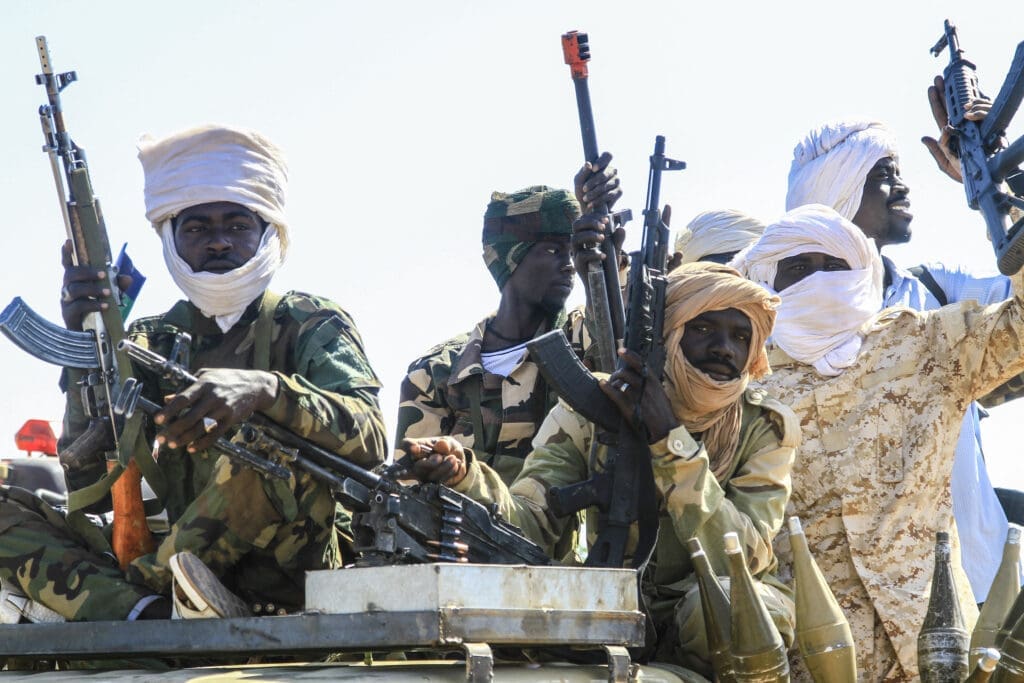Two decades after mass atrocities for which justice has never been served, the capital of North Darfur teeters on the brink once again. El-Fasher is the last of five state capitals in Sudan’s vast Darfur region that has not fallen to the paramilitary Rapid Support Forces (RSF) in the course of the country’s war. Vulnerable to famine and atrocities, surrounded by RSF forces, and host to around half a million people displaced by violence elsewhere in Darfur with nowhere to go, the city is emblematic both of Sudan’s war of attrition and of the international community’s failure to resolve or mitigate it.
El-Fasher has been staring disaster in the face for months. The city represents a key prize for both main sides in Sudan’s year-long war. Were the Sudanese Armed Forces (SAF) to regain control of the city and its surroundings, they would have a launchpad from which to recapture the border province of West Darfur, which serves as a vital entry point for weapons deliveries to their rival the RSF—notably from the United Arab Emirates. If the RSF consolidated its gains around El-Fasher by taking the city itself, it would be able to dominate the entire Darfur region and Sudan’s western border, as well as securing fuel supply lines from the forces controlling eastern Libya.
The city has seen a series of attacks by the RSF, including the razing of vast residential areas, intense skirmishes between the two sides and their armed allies, and aerial bombardments by the SAF. However, until recently, these had stopped short of an all-out battle for El-Fasher. The reasons for this are both military and political. The army has been steadily arming its soldiers and allied armed groups through shipments, smuggled into the city, or through air drops. The RSF has been gradually redeploying forces and artillery from South and West Darfur to areas around El-Fasher, in preparation for a big show-down.
After several SAF victories in Khartoum in February, the RSF realized that the SAF was working through allies in and around El-Fasher—primarily the Sudan Liberation Army leader Minni Minawi—to provoke an RSF attack on El-Fasher. A fight there would draw RSF soldiers away from Khartoum and the central state of Gezira, where the SAF would likely launch a concurrent campaign to retake the area. This realization, along with effective popular resistance within the city, prompted the RSF to delay its attack on El-Fasher despite battlefield successes in the other four states of the Darfur region towards the end of 2023. Predictably timed with the April 2024 skirmishes, the SAF launched an attack in Gezira.
In the lead up to the current crescendo in fighting, the SAF began gathering a coalition, including RSF former comrade Musa Hilal, able to put up a significantly stronger fight in the city. To do so, the SAF relied on armed groups that supported the military’s 2021 coup against the then-civilian led transitional government and have since become fully embedded in its patronage network.
Sensing that this coalition could grow into a significant threat, the RSF and its own allied militias set out to fast-track their firmly-held objective of fully taking El-Fasher by mobilizing Arab groups from across Darfur and parts of Chad using a grim-yet-effective us-versus-them narrative. It timed this to take place as U.S. and Saudi-backed ceasefire talks were set to resume in Jeddah—a process the RSF has repeatedly used as cover for their atrocities, which is one of many reasons why the Jeddah ceasefire format should be rethought entirely. Accordingly, delays to the talks have so far partially deferred the expected full-scale attack.
But while senior RSF leaders, such as deputy commander Abdelrahim Dagalo, wanted to make a show of force after being sanctioned by the U.S. government, the group’s armed allies on the ground were more motivated by a desire to settle scores with landed, non-Arab groups that they saw as having benefitted from previous peace agreements. Moreover, as a recent report by Human Rights Watch demonstrated, land—or more precisely the resources beneath it—has always underpinned atrocities across Sudan, particularly in Darfur. This was the case when the SAF and the RSF jointly committed ethnic cleansing and were accused of genocide there between 2003 and 2005. If one side or the other was able to secure a military victory in Darfur, it could easily leverage the region’s gold, uranium, other minerals, and borders to gain money, power, and bullets to keep the war effort going.
International Inaction
The human impact of an all-out battle in El-Fasher, under the specter of an ongoing famine, is apocalyptic. In other words, the stakes could not be higher. Still, despite the inevitability that this battle will take place given the military objectives of the belligerents and the inaction of the international community, there are ways that the risks can be mitigated.
The priority must be to deploy a force mandated to do what the belligerents, particularly the SAF and the RSF, have never done: put civilians first.
Unfortunately, such force no longer exists. In a spectacular lack of foresight, the United Nations allowed first a drawdown of the UN-African Union mission in Darfur in 2020, then the 2023 termination of the UN Integrated Transition Assistance Mission in Sudan. The latter had been aimed at supporting the country’s transition to democratic rule following the fall of President Omar Al-Bashir during mass protests in 2019. These moves have ensured that no entity currently has a mandate to protect civilians in Sudan—despite the fact that the 20-year conflict in Darfur has never been resolved and that attacks, killings, and atrocities have continued, ironically fueled by the provisions of a 2020 peace agreement.
An international mission to protect civilians is essential but would take time to get approved, funded, and deployed. In the interim, international actors need to deploy monitoring and observational missions and step up and coordinate diplomatic efforts, which have been sorely lacking since the beginning of the war. In particular, these efforts should engage the RSF at multiple levels, including both the senior leadership and local leaders.
Diplomacy also needs to build on local ceasefire deals, which have helped stave off an all-out battle, until now. For example, some members of non-Arab groups, the RSF’s main target for atrocities, have been using their political or economic connections within the RSF to delay attacks and mitigate violence. They were largely urged by pro-democracy neighborhood Resistance Committees, that wanted to maintain El-Fasher’s sanctuary status, undeterred by the RSF’s practice of systematically breaking ceasefires. This push saw Suliman Sandal—a Darfuri politician who split from one of the main armed groups supporting the army, and who is thought to be closer to the RSF—maintain open lines of communication to the sultan of the Zaghawa tribe, who is still allied with the army, urging him to use this link to push for ways to de-escalate the violence. Other Zaghawa members allied to the RSF have attempted to de-escalate the violence too, as have some in the Fur and Dago ethnic groups. These attempts have had varying degrees of success but have not been supported by international mediation and de-escalation efforts that could significantly boost their impact.
The world is well aware of the risk of atrocities in El-Fasher. Yet, just like before the war, it is ignoring the signs of impending doom. In the meantime, the RSF has been making use of international silence on El-Fasher to gradually move in and encircle the city. It has burned areas the size of 61 football pitches and kettled the city’s swollen population into camps for internally displaced people. Residents are living in constant fear of an RSF takeover, having seen the atrocities committed by the group elsewhere in Darfur for over 20 years.
In the medium term, with few safe passage options available for its 2.8 million residents, El-Fasher must be demilitarized to safeguard its status as a sanctuary city. A military win for the RSF would soon result in a political loss as mounting atrocities further damage its reputation. The opposite is true for the SAF: a military loss would deliver a political win following RSF atrocities. In the end, both groups have much to lose and should be encouraged to simultaneously withdraw from El-Fasher and let it function as a sanctuary city.
In the absence of justice for the genocide and crimes against humanity committed against the non-Arab groups of Darfur over 20 years ago, a culture of impunity has firmly taken root and is fueling the current war. Only by imposing consequences for perpetrators and their supporters can this culture be ended. As diplomats finally wake up to the consequences of years of failed appeasement policies in Sudan, world leaders must articulate and urgently bring about accountability now to prevent another disaster.


